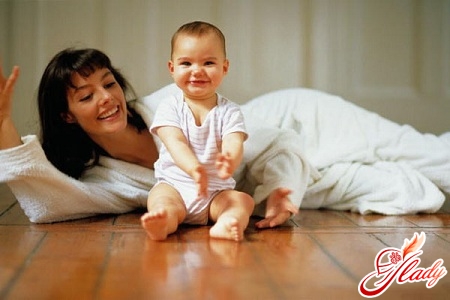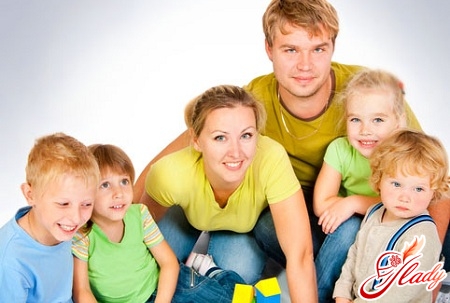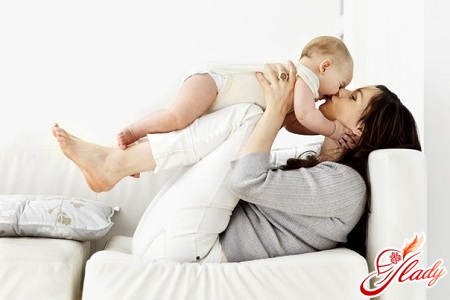 To answer this question correctly,First, we should define who exactly can have the legal status of a single mother. After all, it is not easy for an ordinary person to understand all sorts of legal subtleties; in his understanding, this term can be applied to any woman who raises a child alone, without the participation of the father. But the law draws clear boundaries and gives strict definitions of such status. The category of persons to whom the term "single mother" applies is established by the Family Code of our country. And this is a very important point, because it is this set of rules that is of fundamental importance for securing the rights of such women to social benefits and privileges established by Russian laws. A clear understanding of their status will help single mothers themselves understand the question of how many and what kind of special payments they receive from the state in the process of raising children on their own.
To answer this question correctly,First, we should define who exactly can have the legal status of a single mother. After all, it is not easy for an ordinary person to understand all sorts of legal subtleties; in his understanding, this term can be applied to any woman who raises a child alone, without the participation of the father. But the law draws clear boundaries and gives strict definitions of such status. The category of persons to whom the term "single mother" applies is established by the Family Code of our country. And this is a very important point, because it is this set of rules that is of fundamental importance for securing the rights of such women to social benefits and privileges established by Russian laws. A clear understanding of their status will help single mothers themselves understand the question of how many and what kind of special payments they receive from the state in the process of raising children on their own.
Single mother: legal status
A single mother is a female person,who gave birth to a child during the period when she was not legally married to the alleged father. This term is also applicable if the fact of childbirth occurred within three hundred days from the moment of dissolution of the official union or after this time, but paternity is not recognized, not established, or contested in court with the issuance of an appropriate decision. A single mother is also considered to be a woman who received the right to adopt a child and used it, while not being legally married. To put it simply, the status of a single mother implies that a woman has a child who does not have an official father. In a special book where records are made about the registration of newborns, in this case the child is recorded under the mother's surname. In the column that contains information about the father, there is either a dash, or his data is recorded from the words of the woman in labor, and she immediately receives a certificate in form No. 25, which confirms the fact of single motherhood. Accordingly, such status is not granted to a female who has a child but is divorced, and the spouse has died or is deprived of the right to be a father. It is also not granted in cases where the fact of paternity is voluntarily recognized or established in court. The rights of such women differ significantly from those of single mothers.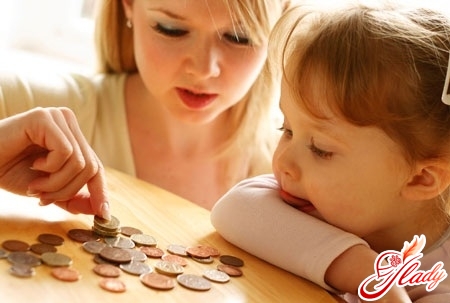

Mandatory government payments
It is worth noting that any representativea woman who is a citizen of Russia and has become a mother, regardless of whether the newborn has an official father or not, has the right to a number of mandatory payments. This is what every modern young mother in our country should receive:
- a one-time payment if she is registered at the clinic for a gestation period of up to twelve weeks;
- financial assistance for pregnancy and childbirth, the so-called maternity money;
- payment at birth of a child, which is carried out one-time;
- payments for the maintenance of the child, which are made monthly until he reaches the age of one and a half.
To apply for a one-time benefit for a child,the amount of which in 2013 will be equal to 13,087 rubles 61 kopecks, a young single mother must submit the following list of basic documents to the social security authorities:
- self-written statement on the form;
- original and copy of your passport;
- certificate or certificate from the registry office of the birth of a child;
- a document specifying the fact of the transfer of the newborn to the adoptive mother and the court decision on the right to adoption (adoption), if the child is adopted;
- certificate from the registry office, which will provide information about the father (his absence).
This same package of documents is a single motherprovides for the registration of the benefit that is paid every month until the baby turns one and a half years old. Also, in some cases, additional information and certificates may be required, which is best discussed with specialists from social security agencies.
Regional payments
The laws of the Russian Federation provide fora number of special payments due specifically to those women who have the status of a single mother. Of course, there are not as many such social benefits as we would like, but they still exist. Unfortunately, not all women know about the payments due to them. If a single mother wants to receive detailed advice on her rights and benefits, she should contact the agency responsible for social protection of the population corresponding to her place of residence. It is there that the woman should ask all the questions she is interested in and receive comprehensive information about what the state has provided in her case. First of all, a working single mother has the right to receive a double tax deduction for expenses provided for the maintenance of a son or daughter until they reach the age of eighteen. And in the event that the children of such women continue their education in higher educational institutions as students, graduate students, cadets or become residents, then the double tax deduction for their mothers will remain longer. It can be used until the children reach the age of twenty-four. If a single mother is raising more than one child, then a double deduction is due for each of them. If a woman enters into a legal marriage, then the tax deduction in the next calendar month will be reduced by half and will be equal to the usual one, regardless of whether her child is adopted by the new spouse. It is also worth noting that in any region of Russia, a single mother must receive an additional amount to the monthly child care allowance until the child is one and a half years old, and can also apply for annual state financial assistance in the amount of approximately three hundred rubles. We must not forget that a single mother with one or more minor children is entitled to an additional benefit if the total family income does not exceed the current subsistence minimum stipulated by Russian legislation. And even if the family income is above average, the child is still entitled to additional payments. There are also a number of other cash benefits for mothers living in the regions, for example, these can be one-time payments from the mayor. The question is how many of them there are and what the size of such benefits is - this point must be clarified by contacting the social security authorities at your place of residence for clarification.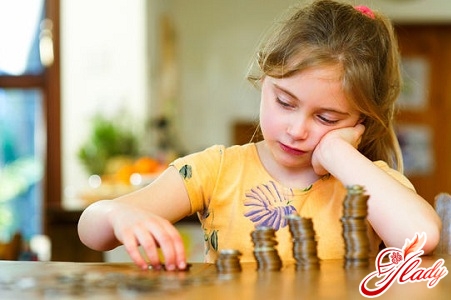

Payments to single mothers in the metropolitan area
If we consider the central regions of Russia,then in Moscow and the region there are benefits and allowances for women who are raising children alone and have the appropriate status. The Moscow government has established an additional allowance for young families, which is paid once in connection with the birth of a child. The right to receive it is also granted to single mothers under thirty years of age who have a capital registration. And how much this allowance is in monetary terms depends on the number of children. If a woman with the status of a single mother is registered in Moscow and she has a child under three years old, then she has the right to receive payments to compensate for the growing cost of food for the baby. Their amount is 675 rubles. In Moscow, there is also a monthly allowance for single mothers, which is supposed to reimburse expenses associated with the rising cost of living. It is called a compensatory payment. This benefit is provided to children under the age of sixteen, as well as to those studying in institutions with general education programs and who have not yet reached the age of eighteen. If we specify the amount, then to the question of how much such a payment can be for a single mother, we can answer that it will be approximately 300 rubles per month. If a single mother has a certificate of disability of both the first and second groups, does not work and, accordingly, does not earn money to support the child, she is entitled to monthly compensation of 6,000 rubles. It is paid until the son or daughter of such a woman reaches the age of eighteen, that is, the age that provides for the opportunity for them to get a job. The same applies to situations when a single mother is raising a disabled child or a child who has been disabled since childhood. She is constantly busy with care and is unlikely to be able to earn a living for herself and her child, even with all the desire. Therefore, she is also entitled to payments: in the first case, until the age of eighteen, and in the second, until twenty-three. The compensation is 6,000 rubles per month. A single mother can count on a compensation benefit if she and her child live in a non-privatized residential property under a lease agreement. However, the payments do not apply to those women with children who have entered into such an agreement with relatives, such as grandparents, parents, sisters and brothers, and so on. The amount of such a compensation benefit depends on how many children are being raised by the single mother.
- If she raises three or more childrenminor age, and one of them has not reached three years, the compensation is one hundred percent of the fee paid for the dwelling. However, the amount is limited to 6400 rubles.
- If a single mother is raising two childrenminor children and one of them has not reached the age of three, then the cash benefit to compensate for housing costs is seventy percent of this amount, but cannot exceed 4,400 rubles.
- And in the case when in the care of a single momthere is one child who is under three years old, then the cash payment to cover the cost of renting housing is fifty percent. Its amount may not exceed 3200 rubles.
Regarding payments for sick leavea working single mother, then in the case when her child is treated in a hospital, the calculation of the benefit is made on the basis of work experience. If the son or daughter is at home, and the recovery process is monitored on an outpatient basis, then the amount of payments does not depend on the length of service. They can be calculated and issued in full for the first ten calendar days, and then accrued in an amount equal to fifty percent of the salary. If a preschool-age child falls ill, then the sick leave benefit is due to the mother for the entire period of illness. And if the son or daughter is already seven years old, but not fifteen, then the mother is paid for a two-week period, including weekends, provided that the doctor's report does not indicate the need to extend the treatment period. It would seem that our legislation has taken care of single mothers of the country. Although everyone knows that such women are unlikely to be able to adequately support their children with state payments. But the benefits that exist today provide, albeit a small one, but still an opportunity to hold out until the child can be placed in a preschool institution. Then a single mother will have a chance to return to her previous job or find another one that will allow her to earn money so that her son or daughter does not need anything. Of course, the fate of a single mother has always been difficult. After all, it is on fragile female shoulders that all responsibility for the life of a child falls. And sometimes it is very difficult to bear this burden alone. And even if a single mother has a stable job and a decent income, then in addition to problems associated with daily bread, there are a number of other, no less important aspects of a moral nature associated with raising a child, his adaptation in a team in such a way that the absence of a father does not have a negative impact and does not cause a feeling of inferiority. Therefore, women who are raising the younger generation of little Russians alone should be shown respect and attention at all levels of public life. We recommend reading:
Comments
comments
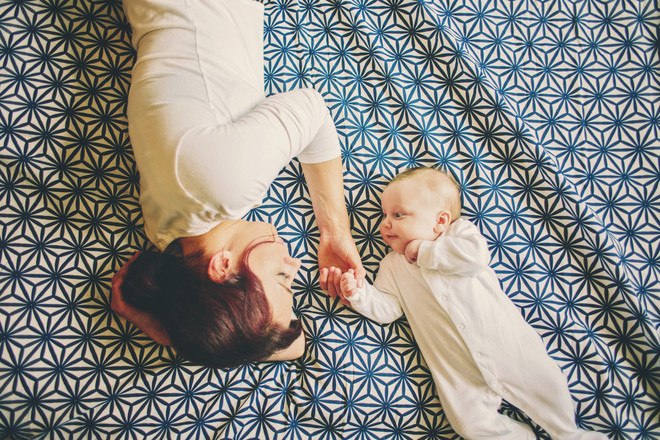 The amount a single mother receives may vary in different regionsPhoto: Getty These include the following categories:
The amount a single mother receives may vary in different regionsPhoto: Getty These include the following categories:









 To answer this question correctly,First, we should define who exactly can have the legal status of a single mother. After all, it is not easy for an ordinary person to understand all sorts of legal subtleties; in his understanding, this term can be applied to any woman who raises a child alone, without the participation of the father. But the law draws clear boundaries and gives strict definitions of such status. The category of persons to whom the term "single mother" applies is established by the Family Code of our country. And this is a very important point, because it is this set of rules that is of fundamental importance for securing the rights of such women to social benefits and privileges established by Russian laws. A clear understanding of their status will help single mothers themselves understand the question of how many and what kind of special payments they receive from the state in the process of raising children on their own.
To answer this question correctly,First, we should define who exactly can have the legal status of a single mother. After all, it is not easy for an ordinary person to understand all sorts of legal subtleties; in his understanding, this term can be applied to any woman who raises a child alone, without the participation of the father. But the law draws clear boundaries and gives strict definitions of such status. The category of persons to whom the term "single mother" applies is established by the Family Code of our country. And this is a very important point, because it is this set of rules that is of fundamental importance for securing the rights of such women to social benefits and privileges established by Russian laws. A clear understanding of their status will help single mothers themselves understand the question of how many and what kind of special payments they receive from the state in the process of raising children on their own.



